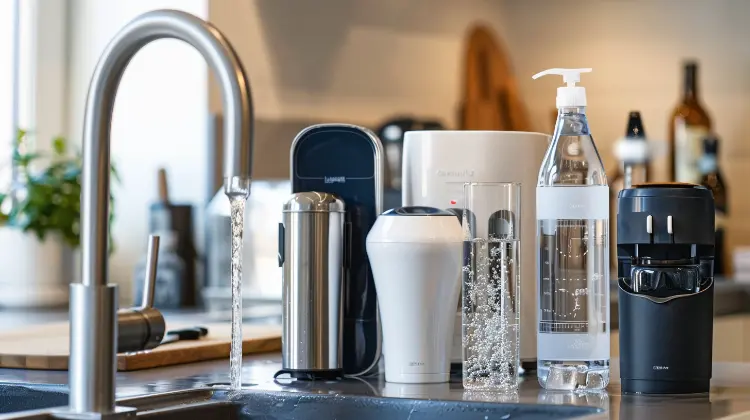In an era where clean drinking water is a concern for many, water filtration systems have become a household necessity. These systems not only ensure the removal of contaminants but also improve the taste and odor of tap water. While bottled water is an alternative, it is often more expensive and less environmentally friendly than using a filtration system. In this article, we delve into the various types of water filters available, their benefits, and considerations to keep in mind.

Access to clean water is essential for health and well-being. According to the Centers for Disease Control and Prevention (CDC), water filters can significantly reduce the presence of contaminants such as lead, chlorine, and other chemicals, as well as harmful bacteria and parasites that can cause illness. The Environmental Working Group (EWG) also highlights that more than 300 pollutants have been found in the U.S. tap water, making filtration a critical step for safe consumption.
Faucet-mounted filters offer immediate filtration by forcing water through an activated carbon block. Many models feature an indicator that signals when the filter cartridge needs replacement. While convenient, these filters can be bulky and may interfere with kitchen activities.
Countertop filters can be placed anywhere on the counter and typically require cartridge changes once or twice a year. They often utilize a combination of ceramic and carbon elements, allowing for the removal of even smaller contaminants. Their size can be a drawback, as they may take up valuable counter space.
Under-sink filters are designed to be space-efficient and are installed out of sight. They usually offer a higher flow rate compared to countertop and faucet-mounted filters and feature an easy cartridge replacement process. These systems are a discreet and convenient option for many households.
The price of water filtration systems varies based on factors such as system type, size, brand, and design. Investing in a water filter can be more cost-effective in the long run compared to the ongoing purchase of bottled water. According to a report by the International Bottled Water Association (IBWA), Americans consumed approximately 14.4 billion gallons of bottled water in 2019, which can add up in cost over time.
Choosing a water filtration system over bottled water also has environmental benefits. The production and disposal of plastic bottles contribute to pollution and waste. The Guardian reports that a million plastic bottles are bought around the world every minute and that number is expected to jump another 20% by 2021. By using a water filter, households can reduce their plastic footprint.
Water filtration is a practical solution for ensuring the safety and quality of drinking water. Whether you opt for a faucet-mounted, countertop, or under-sink system, each type offers distinct advantages and considerations. By understanding the different options and their implications, you can make an informed decision that suits your needs and contributes to a healthier lifestyle and a cleaner environment.
For more information on water filtration and safety, visit the CDC's guide on drinking water and the EWG's Tap Water Database.